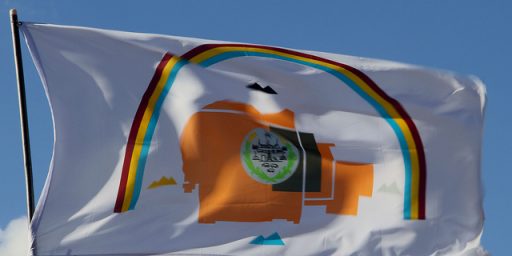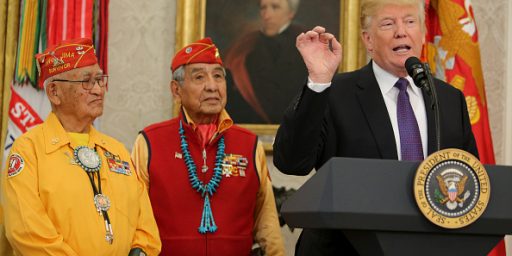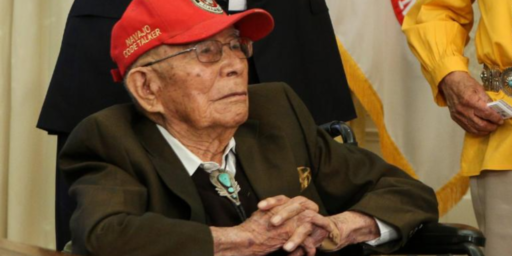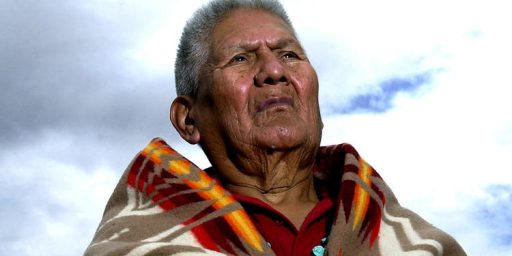Candidate for Navajo Presidency Disqualified Over Language Proficiency
A candidate for President of the Navajo Nation has been disqualified due to his lack of fluency in the Navajo language:
WINDOW ROCK, Ariz. (AP) — Chris Deschene sat before a tribal hearing officer and was asked a series of basic questions, including one about how a resolution becomes law. The catch: He had to answer in Navajo.
Deschene repeatedly refused, saying it was not right that he be singled out and tested on his language ability. He has said time and again on the campaign trail that he is proficient and, therefore, qualified for the top elected post on the country’s largest Indian reservation.
“It’s a fair question. He’s a presidential candidate,” said David Jordan, an attorney for one of the people challenging Deschene’s candidacy. “We’re not asking him the Pythagorean theorem in Navajo. We’re asking how a resolution becomes law.”
Minutes later, tribal hearing officer Richie Nez said he had no choice but to rule against Deschene because he refused to answer questions in Navajo. In a written ruling Thursday, he disqualified Deschene from the November general election.
Deschene vowed to appeal the decision and must do so within 10 days. The tribe’s Supreme Court likely would consider the case on an expedited basis.
Absentee ballots already have been sent out and early voting is under way for the election that is less than four weeks away. Tribal officials have said the language dispute is threatening to postpone the presidential election. If Deschene loses his appeal, the third-place finisher in the primary election would face Joe Shirley Jr.
The dispute has brought attention to a provision in tribal law that requires presidential candidates to be fluent in Navajo. The language is a defining part of the tribe’s culture, said to have been handed down by deities. It is spoken during legislative sessions, in dinner conversations and during Miss Navajo pageants.
Tribal members believe that the presidential language requirement is essential to making sure that the language remains a vital part of life on the reservation.
This is the case I wrote about a couple weeks ago and, as I noted at the time, it seemed to mark a generational dispute among Navajo as much as anything else.






Damn. The Democrats should have thought of this tactic when W was first running…
Maybe the Navajo should replace their formal requirement for fluency with an informal one – don’t make the language requirement a law, but do require that at least one televised all-candidates debate be conducted in the Navajo language. If the voters like a candidate well enough to vote for him even if he stumbles through the Navajo-language debate, then so be it.
This is what’s done in Canada. There’s no formal requirement that the Canadian Prime minister have any level of fluency in both English and French. However, there’s always at least one English and at least one French debate during the election campaign. Any voter who cares enough about fluency in a language can watch that debate and judge for themselves.